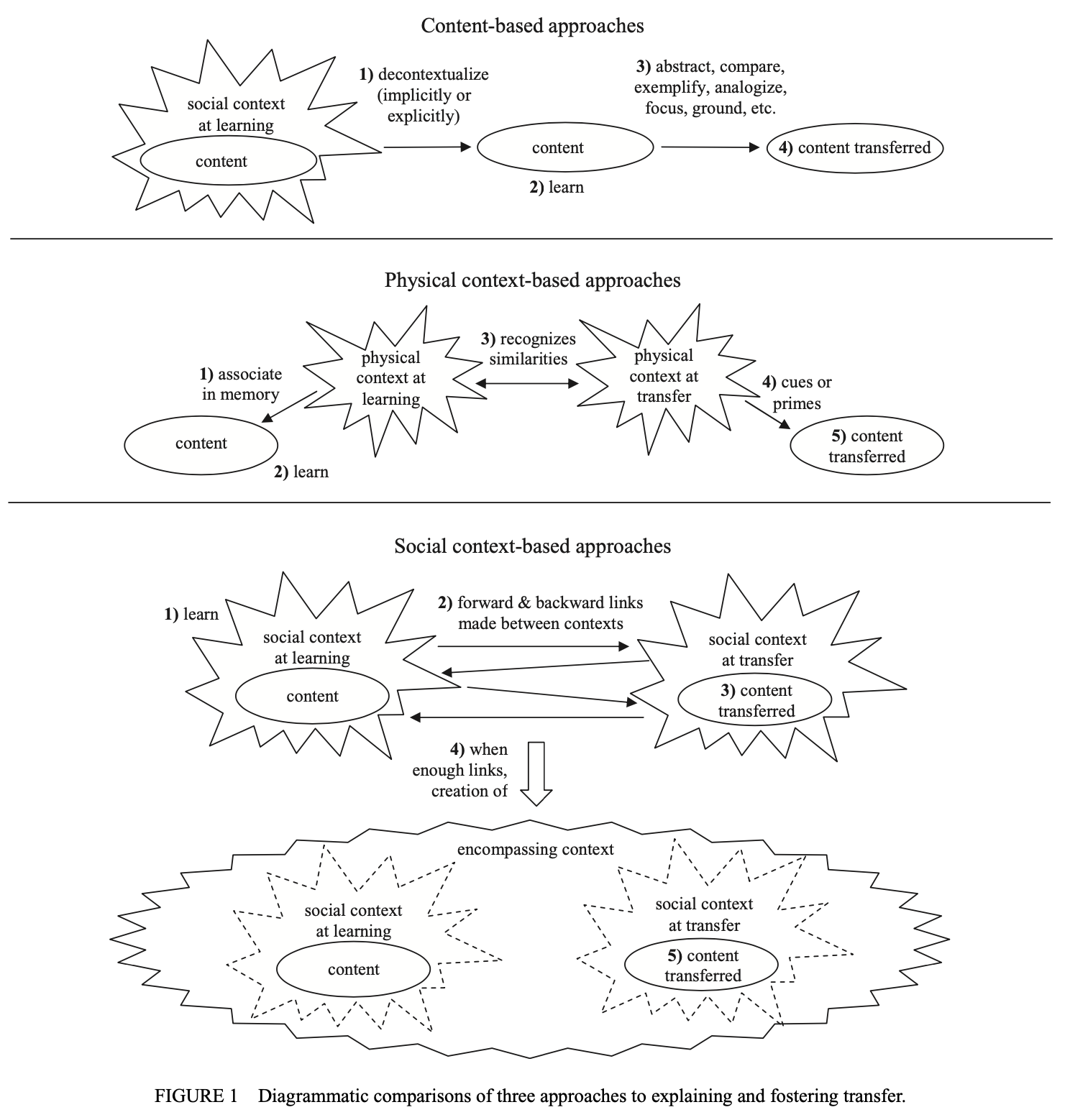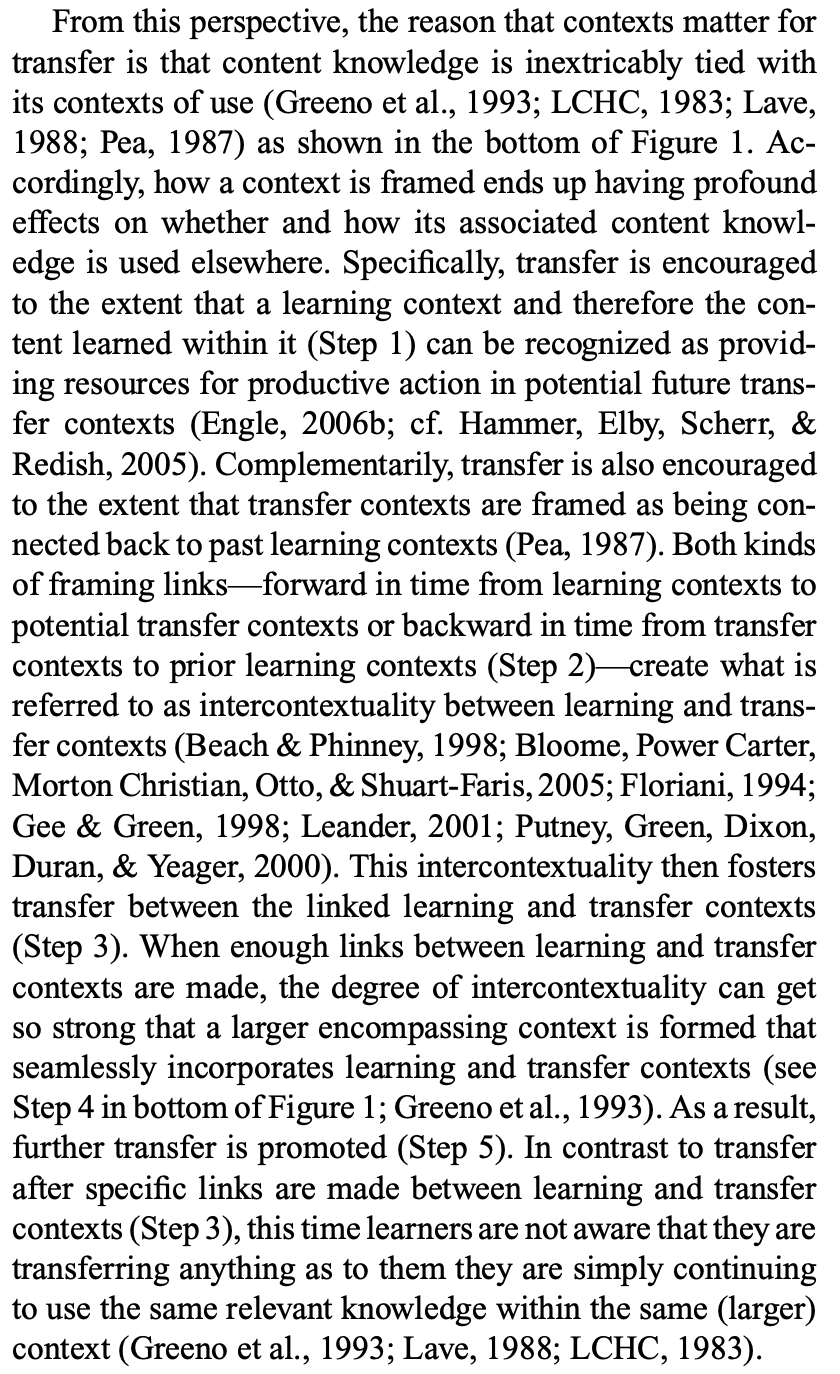This is a tribute (of sorts) to Randi Engle, who passed away in October 2012 at 45 years of age.
I attended my first AERA conference in 2011. It was my first outing at the largest academic conference in the US, and I was excited about presenting a paper on middle school students’ growth of computational thinking language based on an intervention involving Robotics and programming. I’d also made a note of a number of scholars and researchers I hoped to meet at AERA. Randi Engle was one of them. I had heard of her ongoing work on transfer through my advisor, Roy Pea, and her unique approach to it from a social rather than psychological perspective (an important shift many learning sciences researchers were exploring and pushing on in several aspects of learning). Her work on transfer was intertwined in some sense with her other work on engagement and motivation in learning. She drew on the rich early literature in the learning sciences (including, among others, Bransford, Bereiter, Brown, Greeno, Pea, and Lave), and presented a progressive “socially-framed context view of transfer” as distinct from earlier notions of transfer that were based on content-based generalizations.
I did not end up meeting her, and I learned about her illness which precluded her from traveling to the conference. In 2012, I read her absolutely fascinating JLS paper “How Does Expansive Framing Promote Transfer? Several Proposed Explanations and a Research Agenda for Investigating Them“. Her writings on transfer resonated deeply, and just as I was thinking of writing to her, I heard that she had lost her battle with cancer and passed away. For someone I did not know personally and had never met, I was deeply saddened by the news. Perhaps it was because Roy had spoken highly of her and her work. Perhaps it was because she was 45 years old at the time; I too was 45 in 2012. I thought of the brilliant mind and life cut short in its prime.
As I planned my dissertation research that year, I drew heavily on Engle’s work in my learning designs. I designed an entire thread of inquiry on framing the curriculum to motivate students by giving them a sense of computing beyond programming, beyond being just about the field of computing. The ‘perceptions of computing‘ activities were also aimed at addressing students’ deep misperceptions of computing—a recurring issue reported in scores of studies, including my own, over the previous 2 decades. Mediating for, and testing transfer (though a “preparation for future learning” assessment that built explicit bridges between the old and new contexts) became a key piece of the research.
Today, as I work on research that involves computing and STEM+computing curriculum design, I continue to advocate for “expansive framing” of learning. I am an ardent believer in Randi’s message—that framing curricular contexts, and connecting them to the real world and students’ lives, impacts motivation and engagement, and in turn, transfer (although this is only one piece of Engle’s socially-framed context-based transfer).
An invitation late in 2018 to contribute a chapter to a book dedicated to the subject of transfer came as a surprise. It had been 4-5 years since I’d completed my dissertation research. Charles Hohensee (Univ of Delaware) and Joanne Lobato (San Diego State University), neither of whom I had met, were writing an edited collection for SpringerNature titled, “Transfer of Learning: Progressive Perspectives for Mathematics Education and Related Fields.”
Charles wrote, “Joanne and I were particularly interested in inviting you because of your use of Randi Engle’s expansive framing and John Bransford’s preparation for future learning in your 2014 ICLS presentation. Although your presentation was situated within a computer science education context, rather than mathematics education, this work represents the type of progressive conceptualization of transfer we think will inform and inspire mathematics education researchers. Moreover, many mathematics educators are interested in computational thinking.”
As I learned later, Joanne was an advisor on Randi Engle’s NSF CAREER grant. Charles wrote that Joanne “was particularly delighted to see such a thoughtful and effective use of Engle’s expansive framing work. Because many of the chapters in the book are thought pieces, we are particularly pleased to include your empirical study!”
I’m glad that through writing the book chapter, I got the opportunity (albeit belatedly) to do justice (in terms of dissemination) to the specific piece of my dissertation research that was informed by Randi Engle’s work, and how I deployed her ideas in the context of middle school computer science. The chapter goes beyond any of the earlier conference papers linked here, and presents the complete ‘perceptions of computing’ and transfer/PFL thread of my PhD dissertation.
In closing, here are a couple of snapshots from Engle et al. (2012), a paper I hope others in CS education and other STEM education fields will read (along with Engle, 2006; Engle, 2012, and her other papers) and explore/use in their own research on transfer.
 |
 |



